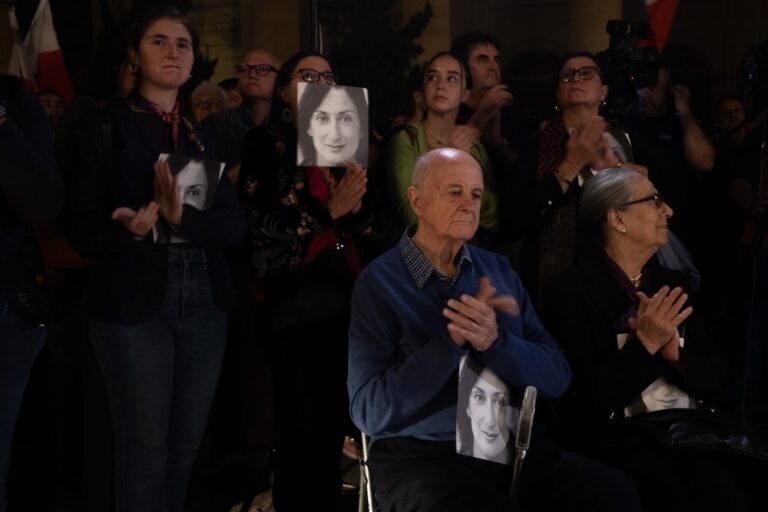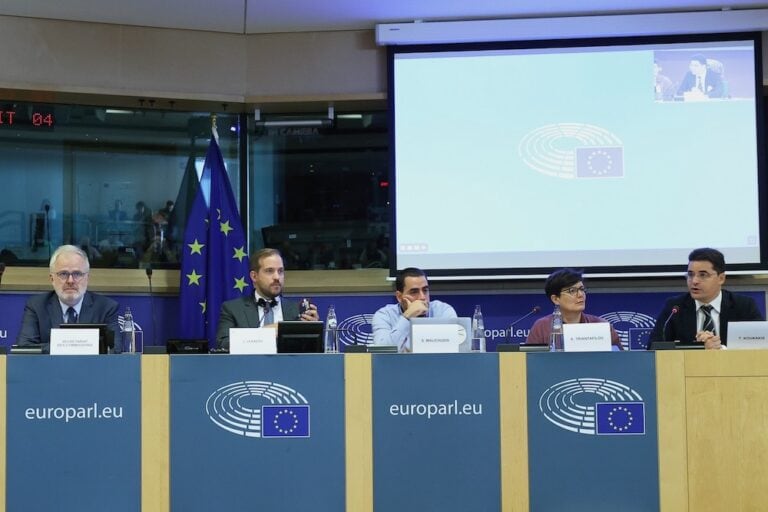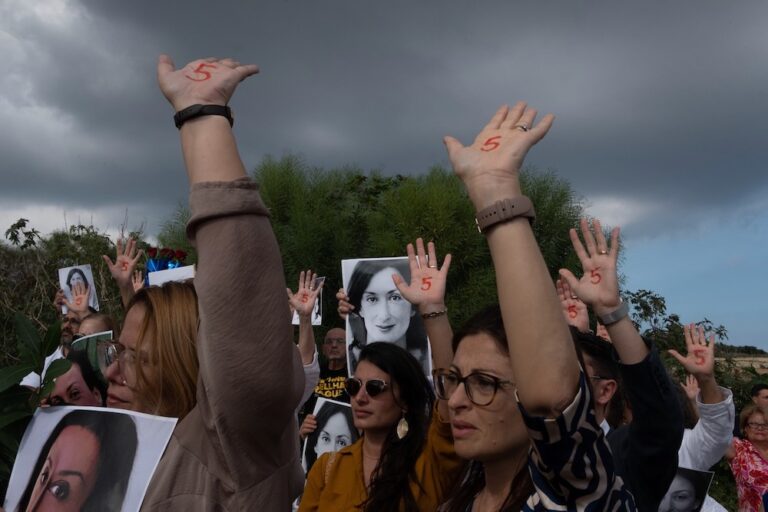On the eve of the fourth anniversary of Daphne Caruana Galizia's murder, rights organisations call on Prime Minister Abela to strengthen media freedom in Malta.
This statement was originally published on rsf.org on 15 October 2021.
On the eve of the fourth anniversary of the assassination of journalist Daphne Caruana Galizia, our five organisations have undertaken a joint press freedom mission to Malta, in follow-up to our initial joint mission at the one-year mark in 2018. We have come together once again to mark the occasion and remember Caruana Galizia’s life, work and courage, and to raise our concerns on the case and the broader press freedom climate in the country directly with the Maltese authorities.
Representatives of ARTICLE 19, the Committee to Protect Journalists, the European Centre for Press and Media Freedom, the European Federation of Journalists, and Reporters Without Borders (RSF) have returned to Malta to press for the need for full criminal justice for Caruana Galizia’s assassination, as well as implementation of the recommendations of the landmark Public Inquiry report, and broader press freedom reforms to recognise journalism as the fourth pillar of democracy and establish in law and practice a safe and enabling environment for all journalists working in Malta.
In a meeting with our representatives today in Valletta, Prime Minister Robert Abela reaffirmed his commitment to ensuring the safety of journalists, both in terms of framework and implementation. We welcome his commitment to remaining in dialogue and consultation with civil society and journalists on the ongoing reforms, and continue to offer our expertise and technical assistance.
We again welcome the findings of the Public Inquiry into the circumstances surrounding Caruana Galizia’s assassination, and will closely monitor implementation of the key recommendations of the report of the Board of Inquiry. We particularly emphasise the need for the full independence of the Commission of Experts, and to ensure that the terms of reference of the Commission meet international standards and the composition of the Commission reflects the expertise in role of press in a democracy needed to effectively undertake the full scope of responsibilities.
We note that this marks an important opportunity for Malta to begin to repair the damage to its press freedom climate and international image. We hope that the implementation of the Public Inquiry recommendations will represent a true turning point for the country, starting with the establishment of an independent Commission of Experts that reflects the full range of expertise needed. We stand ready to provide further assistance in that regard.



